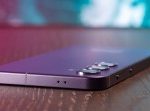The Australian-developed disinfectant, called ViroCLEAR, was developed by BioInnovate and fast-tracked for approval by the Therapeutic Goods Administration (TGA) last month. While other surface disinfectants can take as long as ten minutes to kill the coronavirus — with some unable to do it at all — BioInnovate Chair Ross Macdougald said the breakthrough was achieved after exhaustive research in northern NSW. Production of the spray began in Melbourne this week. “Think about when you go to the supermarket and someone passes you a trolley that has just been wiped down,” he said.NED-3294-NCA-App-Banner“In reality, COVID-19 can stay on that surface for 10 minutes or longer and so it is highly transmissible. “The same goes for handles and seats on public transport, university and school desks, communal food halls and on all surfaces in aged care homes, where 683 older vulnerable residents have died.” The TGA lists 176 disinfectants that have been entered into the Australian Register of Therapeutic Goods (ARTG) for use against COVID-19. Any claim that a product has an effect against a virus must be expressly permitted by the TGA before being used in advertising.ViroCLEAR joins a number of other products already on the Australian market – some of which are non-alcohol based and have a low toxicity, low irritant profile. Among them is Actichem Kwiksan, a hospital-grade disinfectant proven to kill COVID-19 in 60 seconds; Bracton Medi1 surface disinfectant, Diggers Viro Surface Cleaner sold at Bunnings and Mitre 10 and used on NSW public transport for months; and Clinell Universal Wipes, which have all proven to be effective against the virus in just 30 seconds. The wipes were the first of their kind in Australia to conduct an efficacy test against SARS-CoV-2. RELATED: Hotel quarantine risk singled outDuring the pandemic, public-facing businesses such as supermarkets have brought in extra cleaning measures including using hospital-grade disinfectant, regular cleaning of counters and other surfaces, hand washing guidelines and protective gloves.But studies have suggested that COVID-19 can survive for days on surfaces where respiratory droplets land, raising the risk of transmission if an unsuspecting person touches it and then rubs their face or hands. The length of time coronavirus lasts on a surface depends on factors such as temperature and the types of surface — it can live on plastic for up to 72 hours, steel for up to 48 hours, cardboard for up to 24 hours and copper for up to four hours. Mr Macdougald said that ViroCLEAR combines “the three elements of speed, non-toxicity and adaptability to be used on both surfaces and the skin”. “It is safe, quick, low-irritant and non-drying which is particularly important for those sanitising their hands many times a day, such as staff in hospitality venues and aged care homes.” The development and release of the disinfectant coincides with Australia’s coronavirus vaccine rollout, which commenced last week with the Pfizer jab and will include the AstraZeneca vaccine from March 8. RELATED: Quarter of Aussies worried about jabViroCLEAR will first be made available as both a hand sanitiser and a surface disinfectant to 5.5 million Aussies in schools, universities, aged care facilities and hospitality venues. Supplies will then be made available to the broader community as early as the end of the month. “We expect to be in a position to export ViroCLEAR to the United States, Asia and Europe by mid-year, to complement the widespread global vaccination rollout,” Mr Macdougald said. The product will also be rolled out to public transport users in the coming months. Mr Macdougald said the disinfectant comes at the perfect time, as few new cases are being reported nationally at the moment and our state and territory borders open. But, he warned, being on the “cusp of autumn and the cooler months” does increase the risk of new infections and potential new virus strains. “None of us want border closures or full shutdowns again, and eliminating COVID-19 in 90 seconds on surfaces will help complement the vaccination rollout which has only just begun,” he said. NED-1480-How long does Covid-19 last?The World Health Organisation says that disinfection practices are important to reduce the potential for COVID-19 virus contamination in non-healthcare settings such as homes, offices, schools, gyms, community centres, transportation and restaurants. “High-touch surfaces in these non-health care settings should be identified for priority disinfection such as door and window handles, kitchen and food preparation areas, counter tops, bathroom surfaces, toilets and taps, touchscreen personal devices, personal computer keyboards, and work surfaces,” the guidance states.While some have taken to disinfecting groceries, the WHO says there is “no evidence to date of viruses that cause respiratory illnesses being transmitted via food or food packaging.”However, it advises that it is important to always wash your hands with soap and water for at least 40-60 seconds before preparing or eating food.
Powered by WPeMatico






